I don’t normally write about television shows or movies, mostly because I see everything years later after its initially premiered since we only use pay-to-play services like Netflix and Hulu. But this is only a review in part, mostly because a show got me thinking about common issues in writing.
I am a huge sucker for all things fantasy, sci-fi, or supernatural, so when I watched Hap and Leonard last year and loved it with a blazing passion, you could definitely color me surprised. The writing was clean, the characters were amazing, the story was part D.B. Cooper-style mystery, part tragic love story, part buddy movie, part clusterf*ck. The villains were insane (quite literally), and the entire thing was so compelling that I was instantly hooked. I think I ended up watching the whole first season in two days.
Needless to say, when Hap and Leonard season two came out, I was excited. I’d been waiting to see it for a little while, but it was… Not that good. Very different from the heart-pounding finale that I’d just re-watched a few days before in preparation.
I wanted to like this season… but unfortunately, it suffers from some really messy writing.
Most of it was one big, lagging blegh that had me begging for a twist that would reinvigorate my interest and throw me for a loop so I could stop predicting everything that was going to happen.
Every. Thing. That. Happened.
This got me thinking: the gimmicks and clichés they used in this season are common pitfalls that I’ve seen plenty of writers do. Was I surprised to find that I disliked the second season of this show almost as much as I liked the first? YES. And after watching it all, I narrowed it down to just a couple of reasons I think the new season didn’t hold water… or my attention, largely.
So, here are 5 writing mistakes (based on what I saw in Hap and Leonard season two!) that you should avoid:
1. Clichéd villains
On the topic of villains, season one of H&L had some amazing ones. These people were dynamic, they were interesting, they were flawed, and their motivations were unique (if not WTF). But season two threw these interesting characters away and replaced them instead with some cartoonish villains straight out of your Saturday morning line-up.
I expected more from these bad guys, but what the writers delivered was some Scooby-Doo-esque caricatures of down south good ol’ boys. The villains in this season had little real motivation or drive. Overall, the bad guys were weak, unmotivated, and boring. And there are few things worse to do to your story than to give someone a boring villain.
Your villain is a tremendously important part of your story. They should be able to drive the plot and force your characters to react. They have to put your good guys in a no-win situation where all bets are off and your characters have to make a decision. Good bad guys cannot be oafish, buffoonish caricatures of people, because you’re never going to take them seriously.
Think of a villain that really got your blood pumping. Why did they make you feel that way? Think about what their motivation was. Think about them as people first, and bad guys second. Give them desires of their own.
Don’t have them crunch beer cans in their hand to threaten the good guy.
Seriously. Don’t.
2. Making side characters one-dimensional
Ah, stereotypes, how we love you—said no one ever. For H&L being set in 1980s Texas, I knew there were bound to be some. In the first episode of season one, for example, our two heroes are kicked out of the rose fields because some cheaper migrant Mexican farmers took thur jerbs.
This stereotype, however minor, ends up becoming a major catalyst to propel the story, so it’s one that probably gets overlooked immediately. Hap and Leonard are clearly down on their luck, struggling to pay their bills, and doing hard manual labor out in the fields. Losing their meager means of employment makes them susceptible to an offer that they would not otherwise take, so it had a decent purpose.
Season two, however, went off the deep end. Given that this season is based around the disappearances of young black children, they attempted to address the racial environment at the time. The writers wanted to focus the tension between cops and the black neighborhood where this takes place, and they have the double task of showing a black detective trying to earn the respect of his white comrades. But for a show that wanted to address many topics of racial inequality, I was confused as to why they filled it with so many racial stereotypes.
Season one gave us deep emotional connections between the main characters. It told the sad story of what happened between Trudy and Hap, and Hap and Leonard’s tragic bond. One of the white characters even stands up against another white man calling Leonard a racial slur, getting more upset at it than Leonard himself. The characters were well-rounded, had their morals, beliefs, and lines in the sand. Season two… not so much. Perhaps it was the addition of so many new characters, but these people often ended up being pointless stereotypes that seem stretched into handy MacGuffins more than anything else.
And basically everyone is a racist. Everyone. Except Hap.
Several black female characters were often mouthy, gossipy, and prone to aggression. Many of the side character black men who got any screen time were drug-dealers, gang members, and on one occasion, murderers.
The beautiful leading lady, Florida, is introduced as an intelligent, well-to-do powerhouse attorney… who ends up a female love interest/MacGuffin. She never really helps her clients out and only actually goes to court one time, where despite her expertise, intelligence, and experience, she’s unable to get the judge to rule fairly… Yet Hap is able to easily strong-arm him to get the outcome she couldn’t.
Leonard himself, a gay man, ends up being put in a situation where he’s sexually assaulted by another gay man. Given the situation and the deep emotional moments of the first season, this could have been a real scene about Leonard’s own struggles with his sexuality/masculinity, or about consent, or vulnerability, as it had been in season one between him and his boyfriend. Instead, they took the easy route, portraying the other gay man as being overly sexed and aggressive while playing twangy country music over Leonard’s jittery escape to suggest that we should be laughing.
At sexual assault. Because he’s gay.
Even Detective Hanson was basically a stereotypical “Uncle Tom” figure, working for the white man and turning his back on his brothers. For his part, his struggle to maintain his racial identity as a police officer in a deeply racist town never really gets addressed, which was a shame and made his character very one-dimensional.
There are situations where stereotypes can come into play (RARELY), but your supporting characters should not be just empty, predictable, baseless stereotypes. Your secondary characters should have as much design behind them as your main character. If you give in to stereotypes, you’re not doing anyone any favors, least of all your writing. Make your characters—all of your characters—robust, dynamic, and unique.
3. Mistaking mystery for suspense
While season one of H&L had me on the edge of my seat wondering what was going to happen next, season two stripped down the tension and replaced it with dumb-luck happenstance that guaranteed no matter how far off the reservation our characters went, they were going to end up going in the right direction. (Because ghosts?) Once that became apparent, the mystery they were trying to solve lost its oomph and the tension became forced.
Mystery and suspense seem to go hand in hand, but those who aren’t familiar with them can sometimes get confused or think that just because there’s mystery, there’s also going to be suspense.
Finding out that your favorite celebrity is pregnant and won’t say who the baby daddy is can be a mystery.
Finding out that she’s going to do a FB Live reveal in a week and it could be someone really, really inappropriate is suspense.
Just because there is mystery in your story, it doesn’t automatically mean there’s suspense; the two are not synonymous.
When you’re writing a mystery, remember to give your reader tense moments that genuinely threaten the characters’ cause. No one likes a boring, predictable plot.
4. Misdirected misdirection
Misdirects can be an intense and wonderful addition to your story. There’s nothing better than getting to that point in a book and gasping or having to pause for a moment or reread the last line in a brilliant plot twist that you didn’t see coming.
Misdirects have to, however, be: a) tantamount to the plot, and b) actually plausible.
There were a ton of misdirects in season two of H&L, but none of them were anything I could believe. These attempted misdirects weakened the plot and made the characters seem dumb on more than one occasion. If me, the TV-at-home viewer can figure out what’s happening and the characters can’t, it makes it feel like the writers expect the audience to not have many points in their Intelligence skill.
It’s also important to keep your misdirection to a minimum. Remember in Mission Impossible 2 how Tom Cruise’s character keeps taking off masks to reveal the truth behind various disguises? First time, gasp! Second time… okay…? And then after that it loses its effect because magic tricks aren’t as impressive if you see them over and over again.
5. Throwin’ continuity to the wind
There is nothing more infuriating than when you catch your characters or plot in a continuity error. I don’t even know how many forums and fan pages there are on the internet devoted to finding and revealing continuity errors in shows, movies, and books, but… it’s a lot.
This is so important in writing. Your reader/viewer/mom wants to feel like they’re really in the world you’ve created. Like they know and understand your characters and everything that drives them. If you break that for them, you’re gonna have a bad time.
Lots of shows end up doing this, but it happens in books a lot, too, which is why you should always know your characters and story.
In season two of Stranger Things, we’re introduced to Dustin’s pet turtle Yurtle when he finds a demodog. He takes Yurtle out of the aquarium, puts him down, and poof! Gone forever. This one issue stuck out so much to some viewers that we started #WheresYurtle on Twitter.
We’re still waiting for answers, people.
Likewise, in Hap and Leonard, Leonard keeps dogs on his property. The dogs play a significant role in the latter portion of the first season, and then in season two, the dogs… just disappear, never to be heard from again. There’s also the issue of a box filled with money that has literally never been mentioned in the entire second season, despite being imperative to the first. And season one was deep, gritty, and had black humor moments that were sparse and well-placed. Season two was filled with several poor attempts at humor that most often fell flat, ignoring the serious, dark tone of the first season entirely.
Nothing in your writing will distract and break your reader’s suspension of disbelief faster than having something out of place in a story. This could be your character’s actions, certain aspects of their appearance, or if elements of your story suddenly disappear or change drastically.
The best way to avoid this pitfall is to keep track of your characters, their appearances, their wants, etc. You should also have a chart that lays out your story and plot points so you don’t forget and just wipe out something important in your world.
Just remember, your story is going to need details, believable people and plots, and continuity that would make any hardcore fan weep with delight. Because the last thing you want to do is leave your audience confused, angry, and waiting to find out where the f*ck that turtle went for the rest of their lives.
Photo: Getty



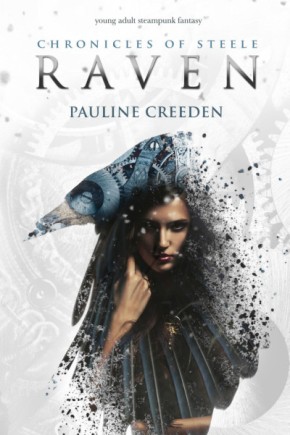 Here, I’ll include an image. Gorgeous, eh?
Here, I’ll include an image. Gorgeous, eh?


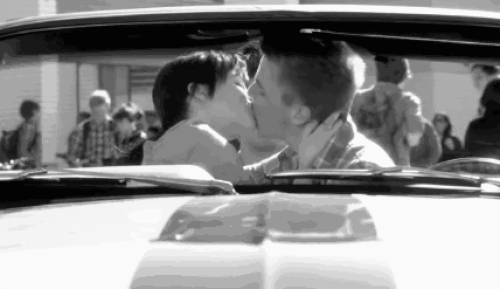



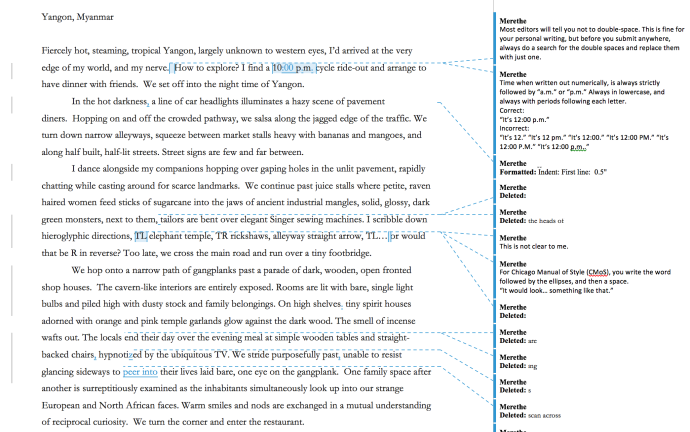


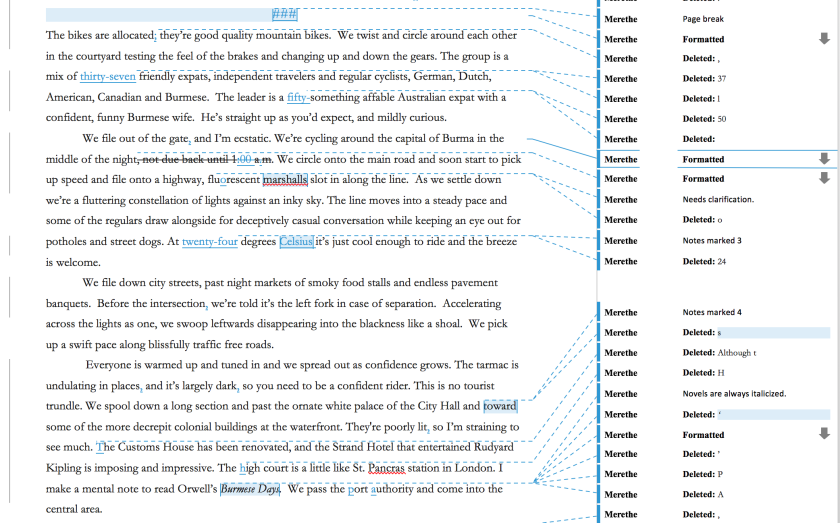 Notes 3. You definitely want to specify to your readers about anything related to temperature. Given that we Americans can’t figure out degrees in Celsius to save our hides, we instinctually fall back on the Fahrenheit degree base, and twenty-four degrees in Fahrenheit does not a pleasant bike ride make! If your readers might be from various parts of the English-speaking world, make sure to specify things like this just so they don’t have to double take to figure out what you mean.
Notes 3. You definitely want to specify to your readers about anything related to temperature. Given that we Americans can’t figure out degrees in Celsius to save our hides, we instinctually fall back on the Fahrenheit degree base, and twenty-four degrees in Fahrenheit does not a pleasant bike ride make! If your readers might be from various parts of the English-speaking world, make sure to specify things like this just so they don’t have to double take to figure out what you mean.
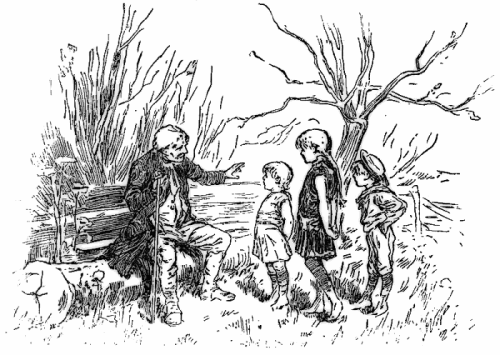


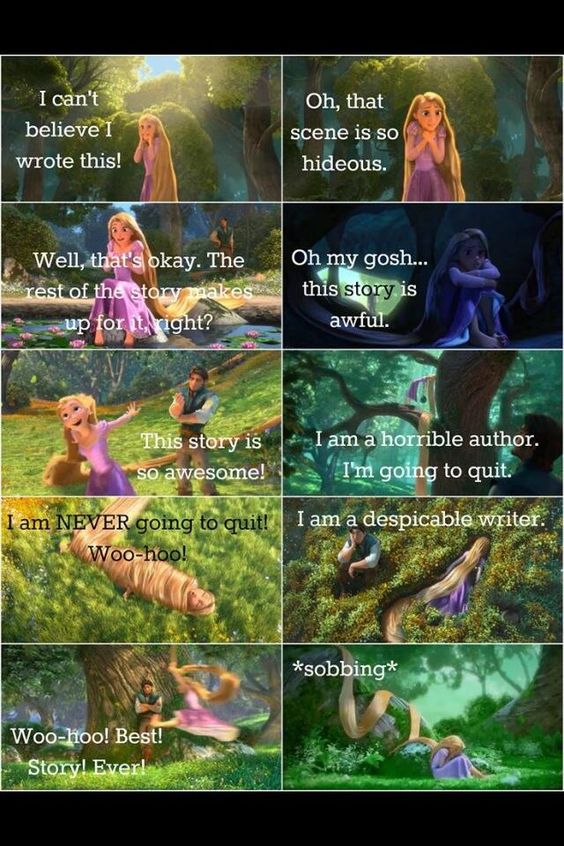


You must be logged in to post a comment.